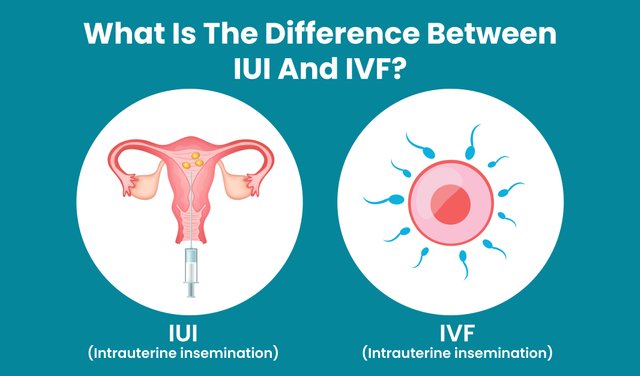
A. What is IUI?
Intrauterine insemination (IUI) is a simple treatment where a perm is directly placed in your uterus. This allows healthy sperm to approach an egg more quickly.
1. What is the procedure for IUI?
Intrauterine insemination is referred to as IUI. It helps sperm reach closer to your egg which reduces the amount of time and distance sperm must travel making fertilization easier states the Best Infertility Specialist in Nashik.
IUI being a low-tech and uncomplicated process is usually less expensive than other reproductive treatments. It boosts your chances of getting pregnant, but because everyone's body is different, IUI isn't guaranteed to work.
2. What should I expect from IUI?
Your doctor will figure out when you're ovulating and ready for the surgery to increase your chances of becoming pregnant. You may take the help of medications.
A semen sample is usually collected by your spouse or donor. A method is known as "sperm washing”. Then extraction of a concentrated amount of healthy sperm in preparation for insemination. Sperm washing also removes toxins in the sperm that can induce responses in your uterus and make it more difficult to conceive. If you're utilizing sperm from a sperm bank, the bank usually provides sperm to the doctor's office that has already been "washed" and is ready for IUI.
During the IUI process, a thin, flexible tube is inserted into your uterus, and then the sperm is directly into your uterus through the tube with the help of a little syringe. When sperm fertilizes an egg and the fertilized egg implants in the lining of your uterus, pregnancy occurs.
3. What is the cost of IUI?
The price of IUI varies based on your insurance coverage and the number of your doctor's expenses. IUI is typically less expensive than IVF.
In a few places, health insurance companies are required to cover some or all of the costs of infertility treatment if specific criteria are met. However, many insurance plans do not cover fertility treatment at all.
B. What is IVF?
IVF (in vitro fertilization) aids in fertilization, embryo development, and implantation, allowing you to get pregnant.
1. What is the procedure for IVF?
The initial stage of IVF is to take fertility drugs for several months in order to help your ovaries generate numerous mature eggs that are ready to fertilize. Ovulation induction is the term for this. Regular ultrasounds or blood tests may be performed to monitor your hormone levels and egg production.
Your doctor will perform egg retrieval. It is a simple surgical procedure performed at a fertility clinic or at your doctor's office.
A medication will be given to help you relax and feel at ease during the process. Then a small, hollow tube is inserted into your vaginal canal using ultrasound to see inside your body.
Then eggs are gently withdrawn out of each follicle with a suction tube attached to the needle.
Then the eggs are combined with sperm cells from your partner or a donor in a laboratory. This process is termed Insemination.
To promote fertilization, sperm with lesser motility (which doesn't swim as well) can be injected directly into the eggs. People working in the lab keep track of how the cells in the fertilized eggs divide and become embryos.
2. What should you expect in the IVF process?
In vitro fertilisation (IVF) stands for in vitro fertilisation. It's a well-known sort of assisted reproductive technology (ART). IVF helps sperm fertilize an egg and the fertilized egg is implanted in your uterus by combining medications and surgical procedures.
To begin, take medicine that helps many of your eggs become fertile states the physicians from the Best Infertility Center in Nashik. The eggs are then removed from your body. They are mixed with the sperm in a lab to aid in sperm fertilization of the eggs. Then 1 or more fertilized eggs (embryos) are implanted directly into your uterus.
IVF involves multiple steps and takes several months. One of the better-known forms of assisted reproductive technologies (ART). IVF works by combining a number of medications and surgical techniques to assist sperm to fertilize an egg and complete the process. It can work the first time, but many individuals require more than one round of IVF to become pregnant. If you're suffering fertility issues, IVF enhances your chances of getting pregnant, but there's no guarantee – everyone's body is different, and IVF won't work for everyone.
Conclusion
Fertility treatments like intrauterine insemination (IUI) and in vitro fertilization (IVF) are used to aid people who are having trouble conceiving. The key difference between IUI and IVF procedures is that IVF involves egg stimulation, retrieval, fertilization, and transfer, whereas an IUI involves injecting sperm into the uterus to shorten the sperm's journey to the egg.